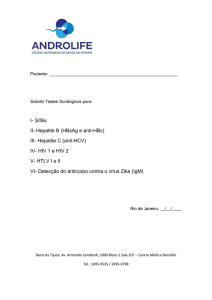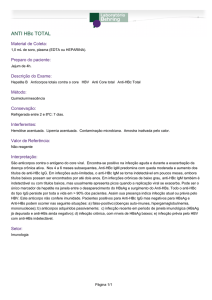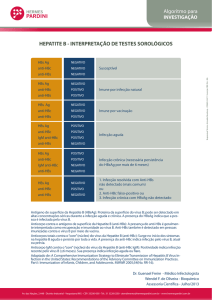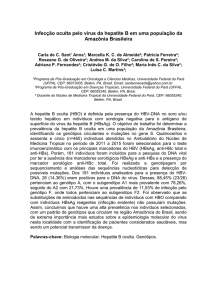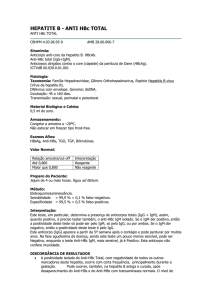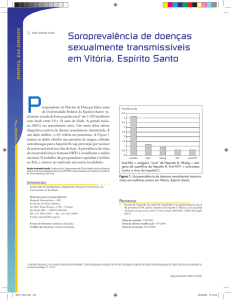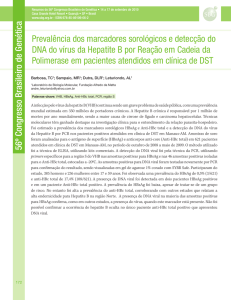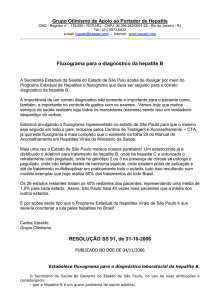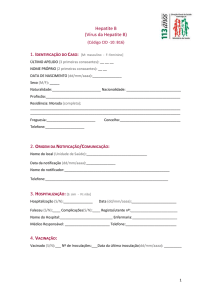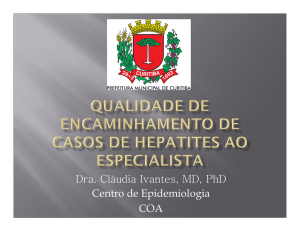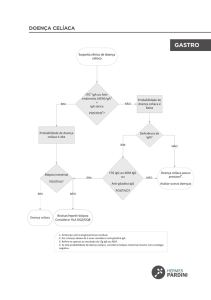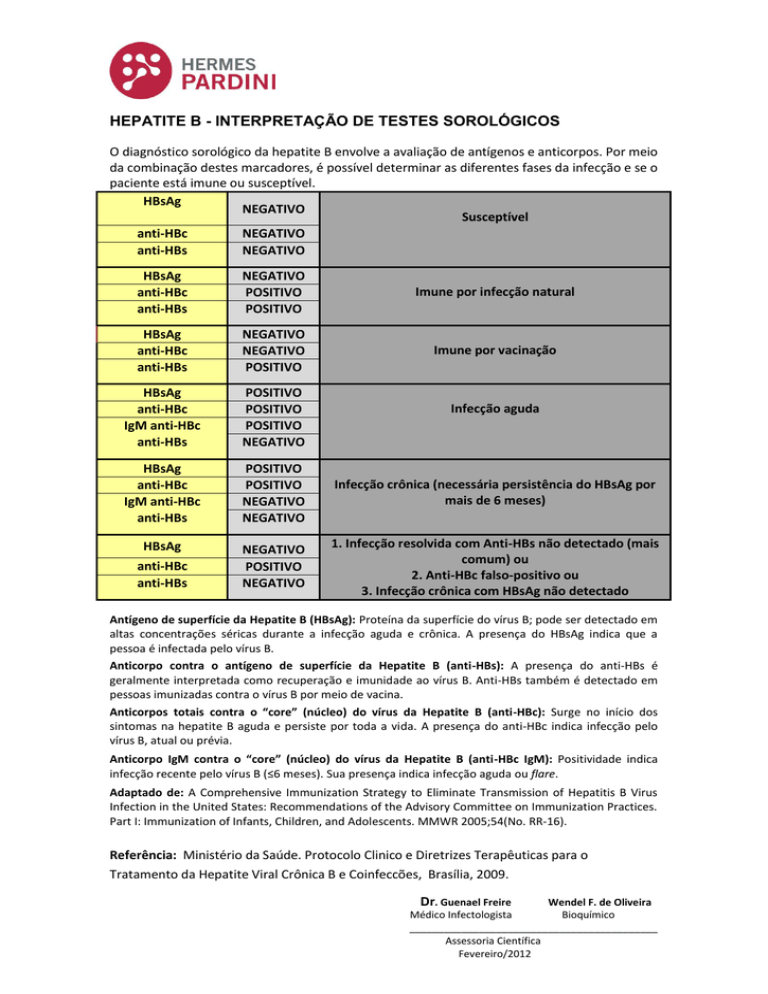
HEPATITE B - INTERPRETAÇÃO DE TESTES SOROLÓGICOS
O diagnóstico sorológico da hepatite B envolve a avaliação de antígenos e anticorpos. Por meio
da combinação destes marcadores, é possível determinar as diferentes fases da infecção e se o
paciente está imune ou susceptível.
HBsAg
NEGATIVO
Susceptível
anti-HBc
NEGATIVO
anti-HBs
NEGATIVO
HBsAg
anti-HBc
anti-HBs
NEGATIVO
POSITIVO
POSITIVO
Imune por infecção natural
HBsAg
anti-HBc
anti-HBs
NEGATIVO
NEGATIVO
POSITIVO
Imune por vacinação
HBsAg
anti-HBc
IgM anti-HBc
anti-HBs
POSITIVO
POSITIVO
POSITIVO
NEGATIVO
HBsAg
anti-HBc
IgM anti-HBc
anti-HBs
POSITIVO
POSITIVO
NEGATIVO
NEGATIVO
Infecção crônica (necessária persistência do HBsAg por
mais de 6 meses)
HBsAg
anti-HBc
anti-HBs
NEGATIVO
POSITIVO
NEGATIVO
1. Infecção resolvida com Anti-HBs não detectado (mais
comum) ou
2. Anti-HBc falso-positivo ou
3. Infecção crônica com HBsAg não detectado
Infecção aguda
Antígeno de superfície da Hepatite B (HBsAg): Proteína da superfície do vírus B; pode ser detectado em
altas concentrações séricas durante a infecção aguda e crônica. A presença do HBsAg indica que a
pessoa é infectada pelo vírus B.
Anticorpo contra o antígeno de superfície da Hepatite B (anti-HBs): A presença do anti-HBs é
geralmente interpretada como recuperação e imunidade ao vírus B. Anti-HBs também é detectado em
pessoas imunizadas contra o vírus B por meio de vacina.
Anticorpos totais contra o “core” (núcleo) do vírus da Hepatite B (anti-HBc): Surge no início dos
sintomas na hepatite B aguda e persiste por toda a vida. A presença do anti-HBc indica infecção pelo
vírus B, atual ou prévia.
Anticorpo IgM contra o “core” (núcleo) do vírus da Hepatite B (anti-HBc IgM): Positividade indica
infecção recente pelo vírus B (≤6 meses). Sua presença indica infecção aguda ou flare.
Adaptado de: A Comprehensive Immunization Strategy to Eliminate Transmission of Hepatitis B Virus
Infection in the United States: Recommendations of the Advisory Committee on Immunization Practices.
Part I: Immunization of Infants, Children, and Adolescents. MMWR 2005;54(No. RR-16).
Referência: Ministério da Saúde. Protocolo Clinico e Diretrizes Terapêuticas para o
Tratamento da Hepatite Viral Crônica B e Coinfeccões, Brasília, 2009.
Dr. Guenael Freire
Wendel F. de Oliveira
Médico Infectologista
Bioquímico
___________________________________________
Assessoria Científica
Fevereiro/2012

